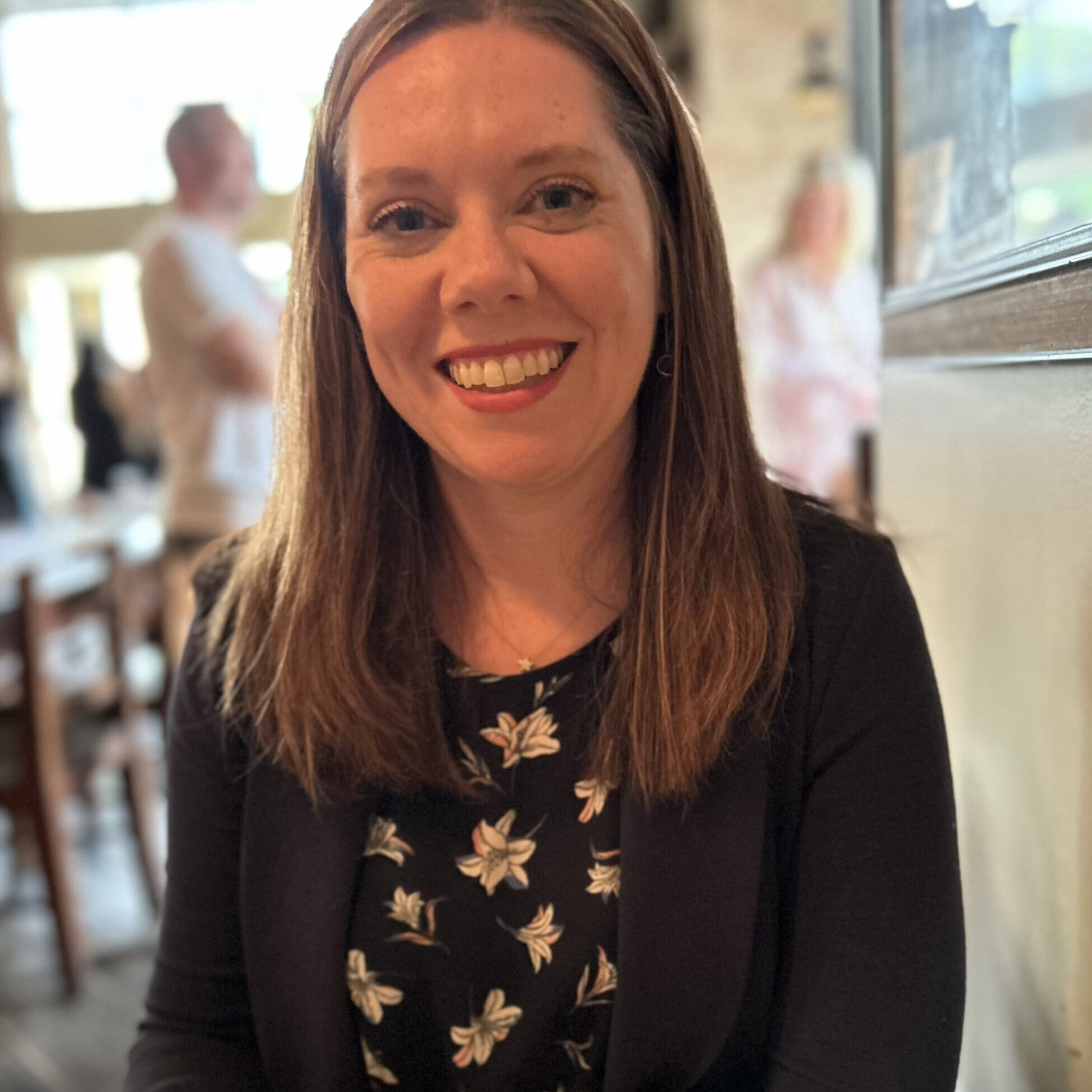Translational Criminology Magazine
Home ›
Translational Criminology is the official magazine of the Center for Evidence-Based Crime Policy and is published twice a year. TC Magazine seeks to advance the overall goal of the CEBCP by showcasing examples of how research is converted into criminal justice practice. In 2023, TC Magazine transitioned to a full editorial team and more content. Read our most recent issue, Fall 2025! (To maximizing your reading experience, use "Two Page View" under the Page Display menu).
Editorial Team
Translational Criminology Magazine Library
Issue 26
Fall 2025
- Reimagining American Policing: Making Communities Safer and Stronger
JAMES J. NOLAN, NATASHA C. PRATT-HARRIS, KEVIN DANIELS, PAUL C. ARCHIBALD, HENRY H. BROWNSTEIN, KIMBERLY GLANVILLE, AND RAIANA DAVIS - Ten Benchmarks for Evidence-Based Policing
CYNTHIA LUM AND CHRISTOPHER S. KOPER - The National Case Closed Project: Translating Effective Change in Fatal and Nonfatal Shooting Investigations
KEVIN J. STROM, TOM SCOTT, AND AMANDA YOUNG - Victim Surveys Can Shape New Policies and Provide a More Complete Understanding of Crime Trends
MIN XIE, MICHAEL REMPEL, JEREMY TRAVIS, STEPHEN KOPPEL, AND PREETI CHAUHAN - “Come on in, the Water’s Fine, Just Remember Your Life Vest.”
JAMES J. GERACE - Policing Can Be Evidence-Based and Make a Difference
BRENDAN FORTE - In Memoriam: Ronald V. Clarke
DAVID WEISBURD
Issue 25
Spring 2025
- Special Issue Editorial Introduction
CHRISTOPHER KOPER - Gun Crime Trends and Challenges with America's Gun Violence Data Infrastructure
ALEX PIQUERO & ROBERT WILCOX - Focused Deterrence Strategies to Reduce Gun Violence
ANTHONY BRAGA - From Local Innovation to Best Practice - Crime Gun Intelligence Centers
JAMES BURCH, II - Reducing the Illegal Supply of Firearms
GAREN WINTEMUTE - Street Outreach Conflict Mediation Strategies: What the Research Suggests (So Far)
EDWARD MAGUIRE, CODY TELEP, THOMAS ABT, ERIKA ADAMS, MARK MILLS, & STEPHANIE GEOGHAN - Extreme Risk Protection Orders to Reduce Mass Shootings and Other Firearms Violence
VERONICA PEAR - Domestic Violence Laws and Firearms Violence
APRIL ZEOLI & MICHAEL HOLTZ - Intervening with Persons at High-Risk for Gun Violence and Mass Shootings
ALICE ELLYSON, SHANNON FRATTAROLI, AND JAMES SILVER - Evidence on Background Check Policies and Gun Crime
DANIEL WEBSTER
Issue 24
Fall 2024
- Public Criminology: Charting the Course from Evidence to Action
NANCY LA VIGNE - Equity in Imprisonment Rates Does Not Equate to Justice
THADDEUS L. JOHNSON, WILLIAM J. SABOL, & NATASHA N. JOHNSON - When is a Benefit a Harm? The Paradox of Stop, Question, and Frisk
JERRY H. RATCLIFFE, ANTHONY A. BRAGA, DANIEL S. NAGIN, DANIEL W. WEBSTER, & DAVID WEISBURD - The 2024 Distinguished Achievement Award Recipients
ANTHONY A. BRAGA & JERRY LEE - Beyond Arrest: A Closer Look at Law Enforcement Assisted Diversion (LEAD)
ERICA MAGAÑA, DINA PERRONE, & AILI MALM - Applying “What Works” to Stop Violence and Save Lives
THOMAS ABT & GRACE MAGORI - Empowering Community Organizations to Co-Produce Public Safety
ALEJANDRO GIMÉNEZ-SANTANA - On-The-Ground Lessons from Launching Cure Violence in Southwest Philadelphia
SARA SOLOMON, DENISE JOHNSON, ANDRE ALI MARTIN, & ELIJAH TADLOCK - What Do We Know About State School Safety Centers?
ASHLEY BOAL & JOSEPH MCKENNA - In Memoriam: Richard Rosenfeld
JOEL WALLMAN
Issue 23
Spring 2024
- Operational Guidance for Enhancing Hot Spot “Koper” Patrols
BY CYNTHIA LUM AND CHRISTOPHER S. KOPER - What is the Regression Discontinuity Design and How Can it be Used to Evaluate Crime and Justice Interventions?
BY JONATHAN NAKAMOTO, ALEXIS GRANT, TRENT BASKERVILLE, AND ANTHONY PETROSINO - A Different $230 Billion Question: Bringing Evidence to International Law Enforcement Assistance
BY KEIRA GIPSON - Reducing Racial Inequality in Crime and Justice
BY BRUCE WESTERN AND EMILY BACKES - The 4Ts of Building a Successful Researcher-Practitioner Relationship
BY JAMES CHAPMAN, SUE-MING YANG, AND CHARLOTTE GILL - From Science to Practice: Implementing Hot Spots Policing
BY JOSEPH A. GRAMAGLIA, WITH SCOTT PHILLIPS - How to Use Data Dashboards to Advance Criminal Justice Policy Goals
BY AUBREY FOX - Prescription Opioid Policy and the Criminalization of Medical Providers
BY CARA L. SEDNEY, TREAH HAGGERTY, PATRICIA DEKESEREDY, AND HENRY H. BROWNSTEIN
Issue 22
Fall 2022
- The Evidence-Based Policing Hall of Fame 2022 Inductees
- Incorporating Procedural Justice into Hot Spots Policing: Lessons from a Multicity Randomized Trial
BY DAVID WEISBURD, CODY W. TELEP, HEATHER VOVAK, TARYN ZASTROW, ANTHONY A. BRAGA, AND BRANDON TURCHAN - Prospects, Barriers, and Future Directions of Cybercrime Research and Investigations
BY JIN R. LEE - Centering Youth Voice in a Juvenile Justice Research Agenda
BY ALEXIS STERN, SARAH GUCKENBURG, AND COLLEEN CARTER - An Evidence-Based Policing Approach to Promoting the Rule of Law and Protecting Any Population
BY LAWRENCE SHERMAN AND CYNTHIA LUM - The $230 Billion Question: Why Is So Much Being Spent on International Police Assistance with So Little Evidence?
BY LIAM O’SHEA - A Collaborative Approach to the Development of a Gender-Based Violence Police Response Training
BY KATHERINE HOOGESTEYN, JENNIFER ZEUNIK, AND KRISTIN HORAN - Volunteer Police: Often Overlooked, But an Important Part of Understanding Policing
BY ADAM DOBRIN AND ROSS WOLF - In Memoriam: Gerben Bruinsma
BY DAVID WEISBURD
Issue 21
Fall 2021
- A Truth Serum for Your Personal Perspective on Facial Recognition Software in Law Enforcement
BY CYNTHA RUDIN AND SHAWN BUSHWAY - WestEd-CEBCP 2021 Conversation Series, Part II: Mitigating Disparities in Juvenile Justice
BY ANTHONY PETROSINO, CYNTHIA LUM, AND DANIELLE MUNGUIA - Evaluating the Impact of Deploying Body-Worn Cameras on New York City Police Department Officers
BY ANTHONY A. BRAGA, JOHN M. MACDONALD, JAMES MCCABE, PETER ZIMROTH, AND RICHARD JEROME - Getting Innovative in Savannah: The Development of a Practitioner-Researcher Partnership between a University and a District Attorney's Office
BY CHAD POSICK AND MATTHEW BREEDON - Reactions From the Field: Can We Really Defund the Police?
COMMENTARY BY ROD K. BRUNSON, NANCY LA VIGNE, AND JAMES BURCH - Hot Off the Press: Recent Publications by Faculty and Students at the CEBCP
Issue 20
Spring 2021
- WestEd-CEBCP 2021 Conversation Series: Mitigating Disparities in the Justice System
BY ANTHONY PETROSINO, CYNTHIA LUM, AND ARENA C. LAM - Special Feature: Laurie Robinson: A Lifetime of Public Service Connecting Science to National Decision-Making in Criminal Justice
AN INTERVIEW WITH LAURIE O. ROBINSON BY DAVID WEISBURD - Improving Police Response to Mental Health Crises in a Rural Community
BY SUE-MING YANG, CHARLOTTE GILL, L. CAIT KANEWSKE, YI-FANG LU, MUNEEBA AZAM, PAIGE S. THOMPSON, HOWARD HALL, JAMES A. CHAPMAN - Community Perspectives: The Bridge between Criminal Justice Research and Community Action
AN INTERVIEW WITH TONY HAUSNER BY CYNTHIA LUM - The Use of Proactive Traffic Enforcement by Police Agencies
BY XIAOYUN WU, CYNTHIA LUM AND CHRISTOPHER S. KOPER - Hot Off the Press: Recent Publications by Faculty and Students at the CEBCP
Issue 19
Fall 2020
- Perspectives from the Field
WITH DEPUTY CHIEF TARRICK MCGUIRE. - Pracademic Highlights: Operationalizing Research or: How I Learned to Stop Worrying and Love the Consent Decree
BY LOREN ATHERLEY. - The Massachusetts Safe and Successful Youth Initiative: A Promising Statewide Approach to Youth Gun and Gang Violence Prevention
BY PATRICIA CAMPIE, ANTHONY PETROSINO, NICHOLAS READ, TREVOR FRONIUS, SARAH GUCKENBURG, GARIMA SIWACH, AND ALLYSON PAKSTIS. - How Police in São Paulo, Brazil, Are Using Data and Science to Reduce Fatal Vehicle Crashes
BY MADELINE SLOAN, KEN CLARY, AND PAULO SÉRGIO DE OLIVEIRA. - A Comprehensive Framework of Emergency Response Approaches to Vulnerable Populations in Crisis
BY HOLLY SWAN, SAMANTHA KARON, ELYSE YARMOSKY, AND MEG CHAPMAN. - Special Feature: University Research Centers
BY CYNTHIA LUM. - The University of Queensland Crime and Justice Group
BY LORRAINE MAZEROLLE, SARAH BENNETT, PETA COLBERT, AND DEBBIE PLATZ. - The Cambridge Police Executive Program: Proportionality and Evidence-Based Policing against Harm
BY LAWRENCE SHERMAN. - Policing Research in Crisis? The Role of Research Partnerships in Reforming Policing in Scotland
BY ELIZABETH ASTON, MEGAN O’NEILL, AND PENNY WOOLNOUGH - The Center for Violence Prevention and Community Safety at Arizona State University
BY CHARLES KATZ, EDWARD MAGUIRE, DANIELLE WALLACE, AND MICHAEL WHITE - Engaged Scholarship in Police Agencies Has Never Been More Important: A Call to Action from the IACP/UC Center for Police Research and Policy
BY NICHOLAS CORSARO AND ROBIN S. ENGEL - Reimagining Public Safety: The Policing Project at the New York University Law School
BY MAUREEN Q. MCGOUGH - In Memoriam: Hubert Williams
BY DAVID WEISBURD
Issue 18
Spring 2020
- Rethinking the Conclusion that Community Policing Does Not Reduce Crime: Experimental Evidence of Crime Reporting Inflation.
BY DAVID WEISBURD AND CHARLOTTE GILL. - The Anatomy of a Multiagency Research and Practice Partnership to Evaluate Juvenile Correctional Innovations.
BY STACI J. WENDT, DUSTYN PEDERSON, HAYLEY TEWS, ANTHONY PETROSINO, AND PAMELA MACDOUGALL. - Countering Mass Shootings in the United States.
BY DANIEL NAGIN, CHRISTOPHER S. KOPER, AND CYNTHIA LUM. - The World of Emergency Calltakers and Dispatchers.
BY CYNTHIA LUM, CHRISTOPHER KOPER, MEGAN STOLTZ, MICHAEL GOODIER, WILLIAM JOHNSON, HEATHER PRINCE, AND XIAOYUN WU. - Developing Methodology for Finding Ghosted Police Vehicle Pursuits.
BY MICHAEL PFEIFFER AND GEOFFREY ALPERT. - “Mobile” or “Assigned”? Pros and Cons of Two Different Models of Deploying SROs.
BY JOHN ROSIAK. - Congratulations to Our Graduates!
HIGHLIGHTING DRS. SANGJUN PARK, J. AMBER SCHERER, AND XIAOYUN WU. - In Tribute: Herman Goldstein (1931 – 2020).
BY JOHN E. ECK AND MICHAEL B. SCOTT.
Issue 17
Fall 2019
- The Importance of Nonfatal Shooting Data to Inform Violence-Prevention Policy, Practice, and Research.
BY EDMUND F. MCGARRELL, NATALIE KROOVAND HIPPLE, BETH M. HUEBNER, AND MALLORY O’BRIEN. - Building the Evidence Base for Criminal Discovery Policies.
BY ALLISON D. REDLICH AND SAMANTHA LUNA. - The Evidence-Base for Body-Worn Cameras: What Law Enforcement Leaders Still Need to Know.
BY CYNTHIA LUM AND CHRISTOPHER S. KOPER. - The Evolution of New York’s SNUG Street Outreach Program.
BY LEIGH BATES, TERRY SALO, AND MIKE WOOD. - The 2019 Distinguished Achievement Award in Evidence-Based Crime Policy.
- The Evidence-Based Policing Hall of Fame.
- Testing Cruise Lights on Patrol: An Illuminating Experience.
BY JEREMIAH P. JOHNSON. - Building a Beautiful Safe Place for Youth in Rainier Beach, Seattle.
BY THE ABSPY CORE TEAM. - Studying Open Drug Markets to Inform Practice and Develop Evidence-Based Drug Policing in Sweden.
BY MIA-MARIA MAGNUSSON. - COMMENTARY: Should We Have Seen the Opioid Crisis Coming?
BY DANA HUNT AND JOHN CARNEVALE. - IN MEMORIAM: Jeremy Richman (1970-2019).
BY ANTHONY PETROSINO.
Special Issue 16
Winter 2019
- Translating Research to Policy: Improving Justice for Women and Girls. BY SHEETAL RANJAN AND AMANDA BURGESS-PROCTOR.
- Investing in Data to Inform Issues of Justice for Women and Girls. BY LYNN ADDINGTON.
- Data-Driven Recommendations Regarding Campus Sexual Misconduct. BY TARA RICHARDS.
- Combatting the Cybersexual Victimization of Girls and Women. BY JORDAN NAVARRO AND SHELLY CLEVENGER.
- Gender-Based Violence in Central America and Women Asylum Seekers in the United States. BY CECILIA MENJÍVAR AND SHANNON DRYSDALE WALSH.
- Testing Sexual Assault Kits Saves Money and Prevents Future Sexual Assaults. BY RACHEL LOVELL, LIUHONG YANG, AND JOANNA KLINGENSTEIN.
- Women in the Correctional System. BY JENNIFER COBBINA.
- Increasing Female Participation in Policing through Researcher-Practitioner Partnerships. BY ANNE LI KRINGEN.
- Women, Peace, and Security Act: Implications for Women in Law Enforcement. BY CARA RABE-HEMP.
- Connecting the Dots: Improving Justice for Women and Girls. BY SHEETAL RANJAN AND JOCELYN FONTAINE.
Issue 15
Fall 2018
- Policy Responses to a High Profile School Tragedy.
BY ANTHONY PETROSINO, ASHLEY BOAL, AND AUGUSTUS MAYS. - Washington/Baltimore High Intensity Drug Trafficking Areas Program Joins George Mason University’s Center for Evidence-Based Crime Policy.
BY TOM CARR AND CYNTHIA LUM. - A Primer on Criminal Justice Risk Assessments.
BY RICHARD BERK. - Utilizing Data and Science to Reduce Serious Injury and Fatality Crashes on Rural Roadways.
BY KEN CLARY. - 50 Years Later: The Kerner Commission Legacy.
BY LAURIE ROBINSON. - Marking the 50th Anniversary of President Johnson’s Crime Commission.
BY TED GEST. - The Distinguished Achievement Award in Evidence-Based Crime Policy 2018 Recipients.
JAMES BUEERMANN AND EDMUND MCGARRELL. - 2018 Evidence-Based Policing Hall of Fame Inductees.
JEFFERY EGGE AND MICHAEL NEWMAN. - Translating Science in Film: The Science & Entertainment Exchange of the National Academy of Sciences.
BY ANN MERCHANT AND ANA SALCEDA. - Proactive Policing’s Effects on Crime and Communities.
BY DAVID WEISBURD AND MALAY MAJMUNDAR. - BetaGov Supports Practitioners and Evaluators in Conducting Randomized Control Trials to Test Criminal Justice Programs.
BY JUSTIN ESCAMILLA, JESSICA REICHERT, MAUREEN HILLHOUSE, AND ANGELA HAWKEN.
Issue 14
Spring 2018
- The Matrix Demonstration Projects: An Update.
BY CYNTHIA LUM AND CHRISTOPHER S. KOPER. - From Research to Practice, Two Decades Later: Evidence-Based Policing in Madison, Wisconsin.
BY CORY NELSON. - Evidence that Gun Laws Can Reduce Intimate Partner Homicides.
BY APRIL M. ZEOLI, ALEXANDER MCCOURT, SHANI BUGGS, SHANNON FRATTAROLI, AND DANIEL W. WEBSTER. - What Role Should Criminologists Play in Criminal Justice Debates? A Push for Public Criminology with a Cautionary Note.
BY JOHN A. SHJARBACK. - RESEARCH NOTES FROM THE FIELD, FOR THE FIELD: P-What? A Practitioner Guide to Understanding P-Values.
BY JEREMIAH P. JOHNSON. - Collaborative Efforts to Address and Prevent Fatal Traffic Crashes.
BY TRACY J. ANDERSON, DANIEL J. FINDLEY, TRAVIS E. BAITY, JOSEPH L. GASKINS, GREG FERRARA, MATTHEW KULIANI, AND PAUL FOLEY. - Using Data to Inform Pretrial Supervision: Strategies from Allegheny County, Pennsylvania.
BY JANICE RADOVICK DEAN AND KATHRYN COLLINS. - EVALUATION NOTE: The Importance of Statistical Power in Social and Behavioral Sciences.
BY NILOOFAR RAMEZANI. - IN MEMORIAM: Jeffrey A. Roth (1945-2017).
BY CHRISTOPHER S. KOPER.
Issue 13
Fall 2017
- The Proactive Policing Lab.
BY CYNTHIA LUM AND CHRISTOPHER S. KOPER. - LEADS Agencies Canada: A New Program to Fix an Old Problem.
BY LAURA HUEY. - Beyond the City Limits: Evaluating Court Reforms in Rural and Small-Town Courts.
BY ALISSA POLLITZ WORDEN, REVEKA V. SHTEYNBERG, KIRSTIN A. MORGAN, AND ANDREW L.B. DAVIES. - Combating the Opioid Crisis with Treatment Not Arrest: An Examination of an Emerging Police Model.
BY JESSICA REICHERT. - SPECIAL FEATURE: The Distinguished Achievement Award in Evidence-Based Crime Policy 2017 Recipients.
FEATURING DORIS L. MACKENZIE AND JAMES K. STEWART. - The Misdemeanor Justice Project: Using Data to Guide Criminal Justice Reform.
BY JEREMY TRAVIS, PREETI CHAUHAN, AND MEREDITH PATTEN, WITH MICHAEL C. GREEN. - SPECIAL FEATURE: The 2017 Evidence-Based Policing Hall of Fame Inductees.
- Trust and Legitimacy Built through Structured, Fair, and Objective Decision Making.
BY MICHAEL GROPMAN AND GINA VINCENT.
Issue 12
Spring 2017
- Integrating Research and Researchers into the U.S. Marshals Service.
BY DAVID BIERIE AND PAUL DETAR. - New Partnership Uses Research and Data to Improve Understanding of Officer-Involved Shootings.
BY JIM BURCH AND BREANNE CAVE. - The Caruth Police Institute: A Model of Embedded Criminology.
BY MELINDA D. SCHLAGER AND ROBERT C. DAVIS. - Moving Toward a Research-Based Framework for School Policing.
BY JOSEPH M. MCKENNA AND KATHY E. MARTINEZ-PRATHER. - Adding More Police Is Unlikely to Reduce Crime: A Meta-Analysis of Police Agency Size and Crime Research.
BY JOHN E. ECK, YONGJEI LEE, AND NICHOLAS CORSARO. - The Role of Consultants in the Applied Research Process.
BY JOHN KAPINOS. - Problem-Oriented Policing as a Form of Translational Criminology.
BY SUZANNE COBLE AND MICHAEL S. SCOTT. - NIJ’s LEADS Programs.
BY GARY CORDNER, GEOFFREY ALPERT, AND MAUREEN MCGOUGH. - Police Research on the Front Lines.
BY JASON POTTS. - Research Note: Gaining Access to Security Environments in Norway.
BY MARTIN NØKLEBERG.
Issue 11
Fall 2016
- When is Innovation Not Enough? The Importance of Organizational Context in Community Policing.
BY CHARLOTTE GILL, DAVID WEISBURD, ZOE VITTER, CLAUDIA GROSS SHADER, TARI NELSON-ZAGAR, AND LINDA SPAIN. - Improving the Practice of Stop and Search in Scotland.
BY MEGAN O’NEILL AND ELIZABETH ASTON. - Evidence-Based Youth Mentoring Systems: Constructing Models to Address Systemic Issues Communities Face.
BY TARRICK MCGUIRE AND CARLIN CALIMAN. - Training New Scholars to Advance Policing Research and Knowledge Translation.
BY CYNTHIA LUM AND NICHOLAS FYFE. - Glasgow’s Community Initiative to Reduce Violence-An Example of International Criminal Justice Policy Transfer Between the US and UK.
BY WILLIAM GRAHAM. - Insight Policing-Investigating the Conflict Behavior in Criminal Behavior.
BY MEGAN PRICE AND LATRIVIETTE YOUNG.
Issue 10
Spring 2016
- Looking Back and Forward: The Matrix and Its Demonstration Projects.
BY CYNTHIA LUM AND CHRISTOPHER S. KOPER - Community Building in Hot Spots: Seattle Neighborhood Group’s Non-Police-Led Crime Prevention Approach.
BY CODY W. TELEP, TARI NELSON-ZAGAR, AND JULIE HIBDON - Providing Services in a Rapid Scale-Up Context: The Importance of Research Partnerships.
BY SARAH KUCK JALBERT, HOLLY SWAN, AND DANA HUNT - What Research is Needed to Help Family Survivors of Homicide?
BY DAN LEVEY, TREVOR FRONIUS, SARAH GUCKENBURG, AND ANTHONY PETROSINO - Collective Action for Trade Transparency against Financial Crime.
BY NIKOS PASSAS - Exploring the Evidence-Based Policy Landscape in Community Corrections: Results from a Statewide Agency Survey.
BY JORDAN M. HYATT AND CHADWICK J. LIBBY - Examining the Success of an Embedded Criminologist Partnership.
BY NICOLE FRISCH
Issue 9
Fall 2015
- Reinventing American Policing: A Seven-Point Blueprint for the 21st Century.
BY CYNTHIA LUM AND DANIEL NAGIN. - Using Social Network Analysis to Guide Law Enforcement Strategies.
BY ANDREW M. FOX, KENNETH J. NOVAK, AND JOSEPH MCHALE. - Time to Rethink the Age of Adult Court Jurisdiction.
BY VINCENT SCHIRALDI AND BRUCE WESTERN. - Promoting Evidence-Based Crime Prevention Policies in Latin America and the Caribbean.
BY LAURA JAITMAN AND ROBERTO GUERRERO COMPEÁN. - Improving Academic-Police Partnerships: Observations and Suggestions from a Long-Term Partnership in Portland, Oregon.
BY KRIS HENNING AND GREG STEWART. - School Safety Research: Where Do We Go From Here?
BY WILLIAM MODZELESKI, CHARLOTTE GILL, AND ANTHONY PETROSINO.
Issue 8
Spring 2015
- The Evolution toward Integrating Science and Evidence in U.S. Department of Justice Agencies—An Insider’s Reflections.
BY JAMES H. BURCH II. - Body-Worn Cameras—Rapid Adoption in a Low-Information Environment?
BY CYNTHIA LUM. - Summer Jobs and Youth Violence.
BY SARA B. HELLER. - Knowledge Transfer in Action: Crime Reduction through a Regulatory Approach.
BY JAMES ROYAN AND JOHN E. ECK. - Evidence-Based Policing, “What Works” and Stratified Policing, “How to Make It Work”.
BY ROBERTO SANTOS AND RACHEL SANTOS. - Understanding Citizen Support for License Plate Readers.
BY LINDA M. MEROLA AND CYNTHIA LUM. - Fulbright@CEBCP: Richard Adams.
BY RICHARD ADAMS.
Issue 7
Fall 2014
- Modeling Successful Researcher-Practitioner Partnerships: The International Association of Chiefs of Police Research Advisory Committee.
BY ED DAVIS AND LAURIE ROBINSON. - The St. Louis Public Safety Partnership.
BY RICHARD ROSENFELD. - Realizing the Potential of Technology for Policing.
BY CHRISTOPHER S. KOPER, CYNTHIA LUM, AND JAMES J. WILLIS. - Integrating Evidence to Stop Shootings: New York’s GIVE (Gun-Involved Violence Elimination) Initiative.
BY THOMAS P. ABT. - Looking Forward, Looking Back: Reflections on the Value of Evidence-Based Practices in Policing.
BY CLARK KIMERER. - Practical Research to Address School Safety: The Secret Service-U.S. Department of Education Safe Schools Initiative.
BY WILLIAM MODZELESKI, ANTHONY PETROSINO, SARAH GUCKENBURG, AND TREVOR FRONIUS. - Developing and Sustaining an International Researcher-Practitioner Partnership.
BY PETER MARTIN AND GEOFFRETY ALPERT. - Juvenile Lifers: Translating Research through the Documentary Film Lost for Life.
BY KATHARINE C. STALEY AND JOSHUA ROFÉ. - Where Social Science Goes Wrong.
BY STUART BUCK.
Issue 6
Spring 2014
- What Is the Future…of Predictive Policing?
BY JERRY RATCLIFFE. - Promoting Rigorous Impact Evaluations on Citizen Security in Latin America and the Caribbean. Contributions from the Inter-American Development Bank.
BY GUSTAVO BELIZ. - Crime Policy Learning at CAF. The Pilar Initiative.
BY DANIEL E. ORTEGA. - Translating Research to Practice and Building Capacity to Use Data, Research, Planning, and Problem-Solving. The Bryne Criminal Justice Innovation Program.
BY ELIZABETH GRIFFITH. - Evidence-Based Policing at Work in Smaller Jurisdictions.
BY TIM HEGARTY, L. SUE WILLIAMS, SHUAN STANTON, AND WILLIAM CHERNOFF. - Transforming the Police through Science.
BY PETER NEYROUD AND DAVID WEISBURD. - Arrests for Misdemeanor Domestic Abuse: A Crucible of Evidence-Based Policing.
BY LAWRENCE W. SHERMAN AND EDWARD FLYNN. - Geographies of Missing People. Improving Police Education and Response to Missing Persons.
BY OLIVIA STEVENSON, PENNY WOOLNOUGH, AND HESTER PARR.
Issue 5
Fall 2013
- Evidence-Based Policing and Integrity.
BY ALEX MURRAY. - Translating the Analysis of Patterns into Police Practice: An Application of a New Spatial Point Pattern Test.
BY MARTIN A. ANDRESEN. - This is Not Your Grandparents’ Prejudice: The Implications of the Modern Science of Bias for Police Training.
BY LORIE FRIDELL - Is Crime Analysis ‘Evidence-Based”?
BY CYNTHIA LUM. - Merging Computing and Crime Science: The Development of a Web-Crawling Tool to Investigate Cybercrime.
BY MARTIN BOUCHARD. - Case of Places.
BY RENEE TATE, THOMAS NEALE, CYNTHIA LUM, AND CHRISTOPHER KOPER. - The Foundation of an Evidence-Based Justice System: The Need for Meaningful Academic and Applied Researcher Partnerships.
Y PHILIP STEVENSON, CHARLES KATZ, AND SCOTT DECKER.
Issue 4
Spring 2013
- Bridging the Gap between Science and Criminal Justice Policy: the Federal Role.
BY LAURIE ROBINSON. - Innovations in Prosecution and Research: Intelligence-Driven Prosecution.
BY DAVID O’KEEFE. - Changing the Culture of Uncommitted Patrol Time: A Work in Progress.
BY JAMES DERMODY. - Translating Research into Practice: Oak Park, Illinois, and the National Police Research Platform.
BY DENNIS ROSENBAUM, RICK TANKLEY, AND GARY CORDNER. - The Role of Research in Controversial Gun Policy Reform.
BY KATHERINE A. VITTES, DANIEL W. WEBSTER, JON S. VERNICK, AND ALICIA SAMUELS. - Beyond the Police: Building “Translation Communities” for Evidence-Based Policing in Seattle.
BY CLAUDIA GROSS-SHADER AND CHARLOTTE GILL. - Training Law Enforcement on How to Police the Teen Brain: Improving Police-Youth Interactions.
BY LISA H. THURAU. - Bridging the Gap between Research and Child Victimization: The Penn State Justice Center for Research.
BY DORIS LAYTON MACKENZIE AND KATHARINE C. STALEY.
Issue 3
Fall 2012
- Translational Criminology.
BY JOHN H. LAUB. - Implementing Procedurally Just Approaches to Policing…One Breath at a Time.
BY LORRAINE MAZEROLLE, PETER MARTIN, AND SARAH BENNETT. - The Campbell Collaboration and Evidence-Based Crime Prevention.
BY MERETE KONNERUP AND CHARLOTTE GILL. - Adapting to Challenges and Change.
BY RENEE J. MITCHELL. - Fostering Knowledge Exchange through Collaboration and Participation: The Edinburgh Executive Sessions.
BY BILL SKELLY, JOHN HAWKINS, ALISTAIR HENRY, AND NICK FYFE. - Incorporating Research into Daily Police Practices: The Matrix Demonstration Project.
BY CYNTHIA LUM AND CHRISTOPHER S. KOPER.
Issue 2
Winter 2012
- Using Research to Improve Pretrial in Montgomery County, Maryland.
BY TIMOTHY MURRAY WITH SHARON TREXLER. - How States can Leverage Research and Analysis to Fight Crime.
BY KRISTEN MAHONEY. - Evidence-Based Policing in Practice: The Case of Safe Street Teams in Boston.
BY ANTHONY A. BRAGA AND EDWARD F. DAVIS. - From Research to Practice: How Jacksonville, Florida, Sheriff’s Office Institutionalized Results from a Problem-Oriented, Hot Spots Policing Experiment.
BY JAMIE ROUSH AND CHRISTOPHER S. KOPER. - What Criminology and Public Health Bring to the Wrestle with Knowledge Translation.
BY CATHERINE GALLAGHER AND ADAM DOBRIN. - Science and Passion in Criminal Justice Policy.
BY JEREMY TRAVIS.
Issue 1
Summer 2011
- Eight Lessons about Evidence-Based Crime Policy.
BY ROBERT BORUCH AND CYNTHIA LUM. - The Challenges of Hot Spots Policing.
BY HASSAN ADEN WITH CHRISTOPHER KOPER. - Partnerships in Evidence-Based Policing.
BY CLAUDIA GROSS-SHADER. - The Evidence for Place-Based Policing.
BY DAVID WEISBURD. - Leading by Evidence and Ethics.
BY PETER NEYROUD.
View selected articles from Spring 2013 and Fall 2013 in Spanish, courtesy of our colleagues at the Inter-American Development Bank. If you enjoy reading our free magazine and would like to make a contribution to support future issues, please consider donating to CEBCP's 100K for 10 Fundraising Campaign. We thank you for your support!











